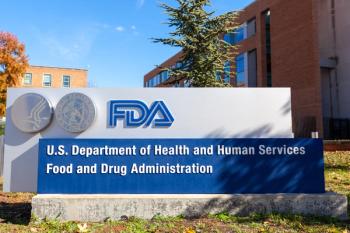
Tennessee lacks prospects to fill large animal roles
NASHVILLE, TENN. — Veterinarians clamoring about the lack of incoming DVMs with interest to practice in rural veterinary hospitals have pushed for legislation to remedy the problem.
NASHVILLE, TENN. — Veterinarians clamoring about the lack of incoming DVMs with interest to practice in rural veterinary hospitals have pushed for legislation to remedy the problem.
Dr. Michael Blackwell
The initial wording in the legislation cited faults with the University of Tennessee (UT) College of Veterinary Medicine and called for a requirement that incoming students have a rural background with hopes more graduates would stay in the area.
"I was alarmed that the university was being labeled a focal point," says Dr. Michael Blackwell, dean of the College of Veterinary Medicine at UT. "We are now calling for a joint study commission and considering building a state incentive program. This shortage of veterinarians is a national security matter."
A revision of the proposed legislation says multiple factors are contributing to the decline of rural veterinarians, and the problem should be multifaceted, including, but not limited to, the selection and training of veterinary medical students.
"All we want to do is get the discussion going," says Dr. Tom Edmonds, Tennessee Board of Veterinary Medical Examiners. "The problem has been around for more than a decade, and something needs to be done."
The Tennessee Veterinary Medical Association (TVMA) has responded to local practitioners' concerns, and in collaboration with Blackwell, have written a proposed bill that is now in the hands of a committee.
It's a problem in every state," says Dee Ann Walker, executive director for TVMA. "No one wants to work in the country when they can go to Nashville and make $20,000 a year more."
HB803, which gives instruction to the veterinary medical college to reserve seats for agriculture students, doesn't prohibit students from practicing in the city, Walker says.
"A lot of people have been practicing large animal medicine without a license," Edmonds says. "There just aren't enough practicing veterinarians to serve the area."
The federal government's promise of funding incentives to new graduates that included paying off veterinary school loans in exchange for practicing in a more rural area for a determined amount of time isn't coming through, Edmonds says.
The National Veterinary Medical Service Act (NVSA) has yet to be funded, but it is in place. NVSA was created to offer government incentives to veterinarians who relocate to underserved areas. Although there isn't a guarantee for the amount or timeframe of the funding, Blackwell says he remains hopeful that the money will come through.
"We're now trying to take a look at local level incentives instead of relying on the federal government to do something about this," Walker adds. "We are beginning to figure out what we can do to help supply the rural areas of our state."
Large animal practitioners are essential to public safety, with 70 percent of emerging infectious diseases and 80 percent of bioterror agents capable of being passed from animals to humans, an excerpt of the proposed legislation states.
"I believe all states should work collaboratively to encourage the government to fund NVSA. We shouldn't have these areas of weakness in food supply in this country," Blackwell says. "There's not enough discussion being done about this in the right places."
In addition, the state benefited from the $8.4 billion in combined profit from the cattle, swine, poultry and equine in 2003 alone, officials contend.
Newsletter
From exam room tips to practice management insights, get trusted veterinary news delivered straight to your inbox—subscribe to dvm360.





